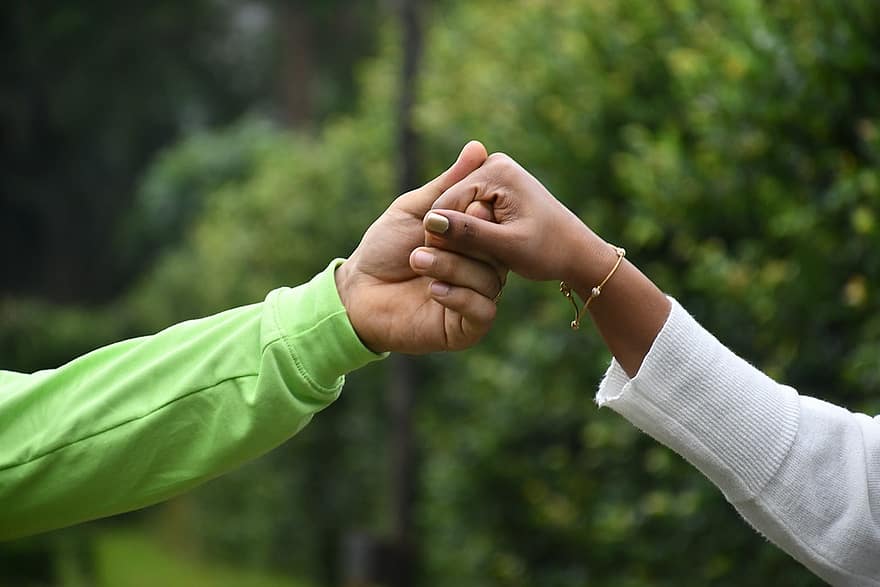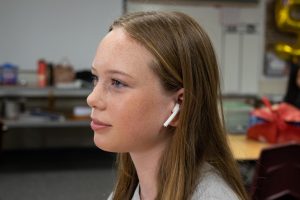Middle School Relationships pt. 2
There are many people who are in middle school relationships, but do they really understand what it means?
June 6, 2022
In middle school, students often have an unspoken longing to be valued and wanted. Some find this fulfillment within a friendship or romantic relationship. But in the end, should students look for romance at such a young age?
Students might look for a relationship because they want someone to provide them with ongoing affection and attention. Yet when students are still in their early teen years, they might jump into something that they are not ready for, leading to regretful outcomes.
“The lope of our brain that makes rational decisions isn’t fully developed until we’re 25-years old,” said 8th-grade teacher, Mrs. Schemenauer. “I think an adult romantic relationship is two people that understand more what they value and what they believe, so they make better choices.”
Being in a relationship also affects a student’s daily life. A study from the University of Georgia evaluated that students are four times more likely to drop out of high school and demonstrated poor study skills when they were dating in middle school.
“We’re all immature, so we all say dumb things, [and] do dumb things, [which can] get in the way of school work and other engagements,” said 7th grader, Dylan C.
A romantic relationship takes a lot of responsibility and maturity. Are early teens really ready for a commitment like this?
“I think it’s natural and normal that [dating] makes you feel good, but it’s only a temporary feeling. And the chances of that good feeling coming from reassurance that someone has an interest is [big]. We all just want to be valued and loved,” said Mrs. Schemenauer.
Yet students may be driven into a romantic relationship as a result of pressure from their peers. When it seems that all of your friends have a girlfriend or boyfriend, it might be easy to feel left out.
“People get into a relationship sometimes because of peer pressure from their friends, even if they don’t really like that person,” said 7th grader, Mary F.
In response to peer pressure, a teenager could step into a commitment that they never really wanted in the first place. They may feel unsure about what to do since they don’t necessarily like who they are with. All of this uncertainty makes it essential to talk with people who have authentic relationship experience.
Unscrambling the confusion can’t be done independently. As problems arise, kids may be afraid to tell their parents about a relationship.
“In this day and age, families don’t think to talk about [relationships] yet. They still see [their children] as kids, not young adults. If your family doesn’t bring it up, maybe you do. But if you’re too embarrassed to talk about it or share about it, then maybe you shouldn’t [be in a relationship]” said 8th-grade teacher, Mr. Hernandez.
Breakups are inevitable because young love rarely works out. Couples either realize that they don’t have much in common, or their parents find out and restrict dating. This can lead to heartbreak, which takes a toll on those involved.
“Sometimes we can have a [broken] bond that will really hurt us or change us, and then we are no longer in that original state where we want to be. It’s normal to have crushes, but it’s important to remember that we’re not fully grown [and] our life has a lot of change ahead. If we start getting overly involved and hoping this is a commitment that will last a lifetime when you’re only 12 or 14, that’s where we start opening our hearts to be hurt,” said Mrs. Shemenauer.
According to NBCComedyPlayground, middle school relationships have less than a 10% chance of it turning into a lifelong marriage. Students who ‘go out’ with one another have to remember that their maturity limits lasting commitment.
In middle school, insecurity is also a significant concern. And in relationships, when a boyfriend or girlfriend spends time with others, jealousy comes into play.
“Say I was dating someone and I have a close relationship with another guy. He might get mad. You can give them both attention, but give your relationship more [to avoid jealousy],” said 7th grader, Lila P.
In contrast, healthy friendships offer safer opportunities for authentic connections.
“Being good friends with someone and being able to know someone is really good. Romantic relationships might not last, but you could become friends with the person and realize oh wow, we’re just young,” said Mrs. Schemenauer.
True friendships offer consistency that relationships don’t. Friends are far more impactful on everyday life and can help in situations where relationships can’t.
“Friendships [are more important] because relationships can end [unexpectedly], but your friends will always be there, so I think a friendship would be better,” said 7th grader, Rocco R.
Maybe Phoebe from Friends said it best: “Boyfriends and girlfriends are gonna come and go but this [as Phoebe points at herself and her friends] is for life.”







Rayla • Oct 13, 2024 at 8:24 pm
I think if kids are really ready they should date and if they really love each other that is all that madders
zac powell • Mar 8, 2025 at 12:31 am
agreed